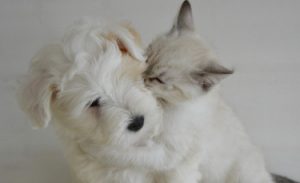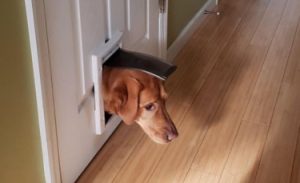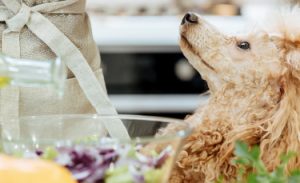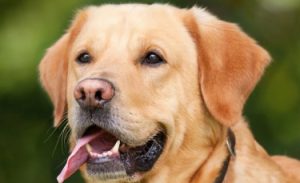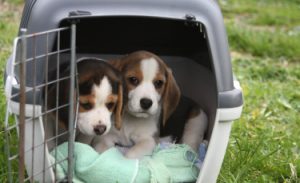Other name: Irish Wolfhound
The Irish Wolfhound is a large dog, of both imposing and elegant build, with well-developed musculature and a high head carriage. Its appearance evokes that of the Scottish Greyhound, but it is more massive than the latter. The gait of the Irish Wolfhound is characterized by movements full of ease and activity.
<!–
–>
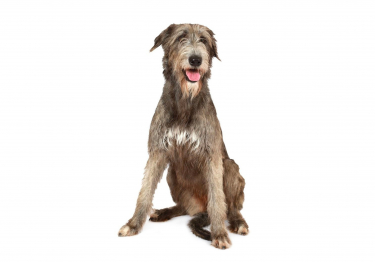
| Half-long | |
| Ireland | |
| Giant | |
| Long |
| Sex | Weight | Cut |
|---|---|---|
| Female | From 40 kg to 60 kg | From 71 cm to 80 cm |
| Male | From 54 kg to 68 kg | From 79 cm to 90 cm |
History of the breed
The Irish Wolfhound is said to be descended from the first large-sized greyhounds bred in Ireland by the Celts from the ancient Egyptian greyhounds. One of his ancestors is often cited the Irish Cu-Chulainn (Culann’s dog). In addition, it is from the Irish Wolfhound that the Scottish Greyhound breed was developed. It has long been used to hunt wolves and deer in Ireland , in other European countries (England, Spain, France, Sweden, Denmark, Poland …), but also in Asia (Persia, India …) , up until the 17th century.
The Irish Wolfhound then fell into disuse in the rate of deforestation and the wolf population decline in Europe, before experiencing a renewed interest in the late 19th century. It was at this time that the breed began to benefit from the contributions of Borzoi and Great Dane, hence its current characteristics. The Irish Wolfhound club was created in 1885. The breed was definitively recognized by the FCI (Fédération Cynologique Internationale) on April 26, 1955. Its official FCI standard in force was published on March 13, 2001.
Irish Wolfhound Pictures
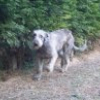
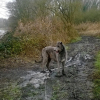
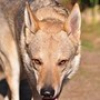
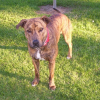
View all Irish Wolfhound photos from Woopets members
Physical features
Behavior and character
| Affectionate | |
|---|---|
| Calm | |
| Protective | |
| Independent | |
| Hunter | |
| Barks / howls |
Behavior with others
| Cohabitation with children | |
|---|---|
| Sociable with other animals | |
| Love strangers |
The Irish Wolfhound
is it right for you? Take the test!
Education
| Clever | |
|---|---|
| Obedient |
Firmness, patience and encouragement are the keys to the education of the Irish Wolfhound. His learning must start as early as possible , otherwise he can do as he pleases as he grows up . The reminder is one of the first things to instill in him. Imposing, the Irish Wolfhound is no less sensitive and it is therefore necessary to proscribe any form of brutality towards him. An education based on positive reinforcement makes it possible to make a balanced dog, obedient and pleasant to live in .
Living conditions
| Suitable for apartment living | |
|---|---|
| Good for new masters | |
| Love it hot | |
| Love the cold |
The Irish Wolfhound is made for the great outdoors . He will hardly adapt to living in an apartment and will rather find his happiness in a house with a large fenced garden .
Health
| Solid | |
|---|---|
| Ease of gaining weight |
The Irish Wolfhound is a rustic and very robust dog . However, there are some predispositions to diseases to watch out for in the breed: hypertrophic osteodystrophy (cartilage disease in puppies), portosystemic shunt, cataracts, cardiomyopathy, calluses, osteosarcoma, among others. Note that this breed of dog is sensitive to anesthesia, so it is important to discuss it with the veterinarian.
Hypoallergenic breed
No
Litter size
Between 3 and 4 puppies
| Major concerns |
|
|||||||
| Minor concerns |
|
| Suggested tests |
|
To protect you from these risks and insure your companion in the event of health problems, Woopets recommends an Irish Wolfhound dog insurance .
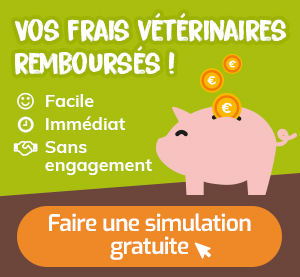
function showAssuranceForm () {var siteReferer = var id_race_association = ”; //console.log(id_race_association);success: function (html) {}});}document.addEventListener (‘DOMContentLoaded’, () => {$ (‘# assuranceModalBanner’). on (‘show.bs.modal’, function (event) {showAssuranceForm ();});});
Life expectancy
Minimum: 6 years
Maximum: 10 years
The life expectancy of an Irish Wolfhound is, on average, between 6 years and 10 years.
Calculate the human age of your Irish Wolfhound!
To choose… 1 year 2 years 3 years Four years 5 years 6 years 7 years 8 years 9 years 10 years 11 years old 12 years 13 years 14 years old 15 years old 16 years old 17 years 18 years old 19 years old 20 years 21 years old
Maintenance and hygiene
| Ease of maintenance | |
|---|---|
| Cost of maintenance | |
| Hair loss |
| Drool level | |
|---|---|
| Ease of grooming |
The Irish Wolfhound is a dog requiring regular maintenance , between hygiene measures and food adapted to its activity.
The dog is to be brushed once a week . During the moult , brushing becomes more frequent (every other day ) in order to remove the dead hairs. The inside of his ears , the condition of his pads and his coat should be examined after each outing.
His teeth need to be brushed regularly to prevent tartar build-up and the proliferation of bacteria. If they do not wear out naturally, its claws need to be cut. If you are new to this, it is recommended that you seek advice from a veterinarian or groomer.
Price and budget
Purchase price
Mini
€ 1,100 Maxi
1300 €
The purchase price of an Irish Wolfhound is between € 1,100 and € 1,300.
Annual maintenance cost
Mini
800 € Maxi
1000 €
The annual maintenance cost of an Irish Wolfhound is between € 800 and € 1000.
No name is currently proposed. Use our tool to find your Irish Wolfhound’s name!
Food
The Irish Wolfhound needs a high quality diet suitable for their activity level, size and age. Its food is to be divided into 2 meals per day . As it is prone to bloating, intense physical exercise is not recommended before and after meals.
Want the best for your dog?
Create the tailor-made diet for your Irish Wolfhound
I discover !
PROMO -30% | Delivered to you!

Physical activity
| Athletic | |
|---|---|
| Energy level | |
| Potential to play |
The Irish Wolfhound needs a lot of daily activity to burn. However, be careful not to put too much strain on your joints to preserve them. One to 2 long trips per day are recommended.
Competitions
| Classifications & Standards |
|
Others
| Master character <span class="btnTooltip qTip2" title="- Calm: the master must be gentle and know how to show patience. – Active: the owner must be energetic and dynamic to live in harmony with his dog. – Hyperactive: the owner must be stimulating and very restless to suit the temperament of his dog.”> |
Active |
|---|
We talk on the forum
The standard of the Little Italian Greyhound
Guest message
Do you have a question about the Irish Wolfhound?
Do not hesitate to ask Woopets visitors for advice on the forum!
FCI Information
FCI No.
160
FCI Group
Group 10: Greyhounds
Recognized by FCI
Since 1955
</div


